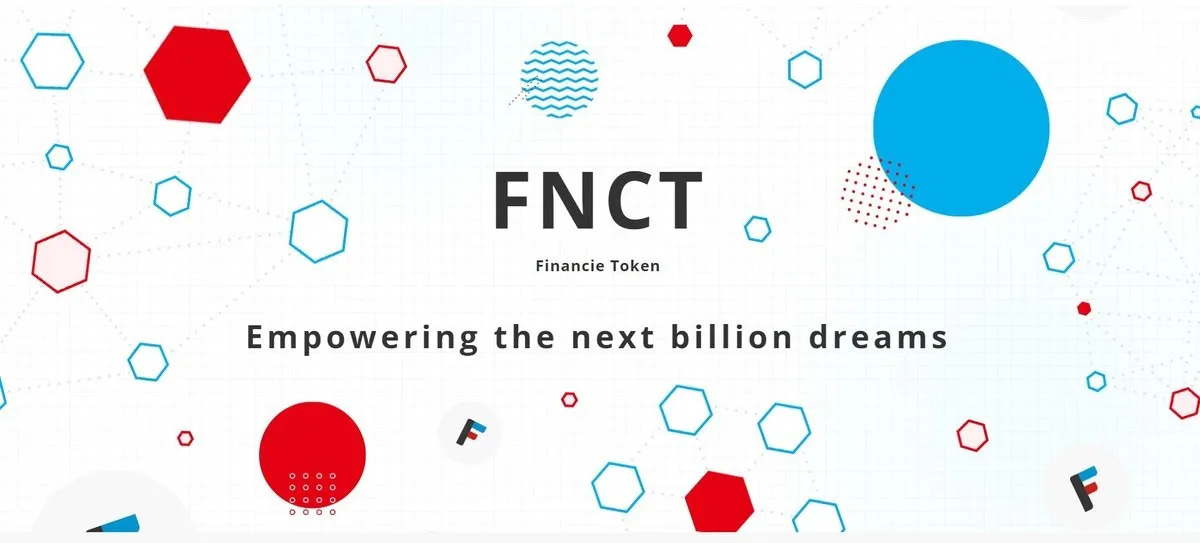2023 might as well be a good year to be more optimistic about Japan’s crypto market. Aki Network guides through crucial readings on Japan’s latest Web3 white paper.
Challenges from regulators behind the 2023 mini bull run
Despite the sudden collapse of Silicon Valley and Signature Banks, which resulted in a “depeg weekend” of several stablecoins including USDC, 2023 so far is actually, for many, a “mini crypto bull market.”
While Bitcoin kicked off the year at $16,500, it has made a whopping 76% gain with a recent high of $29,000. Many popular altcoins, such as Arbitrum’s vertical leaders MAGIC and GMX, outperformed the big caps by significant margins.
Builders have also been busy reaching crucial milestones: Optimism’s collaboration with Coinbase, mainnet launches by Polygon’s zkEVM and zkSync, Ethereum’s passing of ERC-4337, Cosmos’ upgrade to replicated security…
But this vibrant Web3 is in stark contrast to the mounting regulatory challenges towards the crypto world, especially by authorities in the United States after the failures of FTX and Celsius.
SEC’s Chairman Gary Gensler reiterated that any proof-of-stake tokens should be regulated as securities, only to be strongly confronted by CFTC chair Rostin Behnam’s “commodities in my view.”
On whether banks should keep engaging with the crypto sector, the Federal Reserve’s Vice Chair for Supervision, Michael S. Barr, warned that they should “take a careful and cautious approach.”
Turning east: Japan’s regulatory clarity has been strict but effective
As higher rates and heavier regulatory headwinds weigh on the optimistic outlook of Web3 development in the West, the East starts to look more appealing.
Specifically, Japan has long been at the forefront of the cryptocurrency revolution, and the Japanese government has been actively pursuing the creation of a robust and regulated environment for the crypto industry since the early stages of its development.
In 2014, Japan experienced one of the most significant setbacks in the industry. The hack and fall of one of the world’s largest Bitcoin exchanges — Mt. Gox — involved the loss of around 850,000 Bitcoins for retail users. This debacle underscored the urgent need for a well-regulated crypto environment to protect investors and maintain market stability.
Since then, Japan has implemented strict regulations to oversee the cryptocurrency sector, while offering much better clarity than its counterparts, such as the United States.
In 2017, the Payment Services Act was amended to include cryptocurrency exchanges, establishing a licensing system overseen by a single regulatory body — the Financial Services Agency (FSA).
This amendment made Japan one of the first countries to not only recognize cryptocurrencies as legal forms of payment, but also formally differentiate them from securities.
Japan’s regulatory clarity on cryptocurrency is more than evident from multiple perspectives.
The regulatory framework emphasizes consumer protection, mandating exchanges to segregate customers’ assets from their operational funds (at minimum 95% of them in cold wallets), further safeguarding investors’ deposits.
The FSA requires exchanges to maintain adequate capital reserves to protect users in case of insolvency. The amount put aside needs to exceed the risk exposure by roughly three to four times, according to a recent interview by the country’s leading exchange Bitflyer.
The FSA’s guidelines mandate crypto exchanges should implement strict anti-money laundering (AML) and know-your-customer (KYC) procedures, ensuring transparent transactions and safeguarding against illicit activities.
In practice, Japan’s regulatory environment has enabled the creation of crypto-friendly banks like SBI Group’s VC Trading. Startups and established enterprises have prospered with this backing from the fiat system, awaiting further support from the highly anticipated digital Yen from the Bank of Japan.
Japan’s regulatory superiority was fully demonstrated during the FTX downfall. Thanks to the robust regulatory framework, Japanese authorities were able to step in swiftly and secure investors’ assets, making customers of FTX Japan one of the first to get their money back.
Overall, Japan’s crypto regulatory clarity is strict but not prohibitive, and most importantly, it has been exceptionally effective in protecting retail investors.
Listings on Japan’s exchanges: even stricter, yet successful
Zooming in on rules to list crypto assets on Japan’s centralized exchanges, we found that regulations in place are even stricter.
All coins to be offered on Japanese exchanges need to be evaluated and approved by the Japan Virtual Currency Exchange Association (JVCEA), a self-regulatory body that oversees and enforces the guidelines for listing and Initial Exchange Offerings (IEOs).
However, the examination by JVCEA has been so thorough and detailed that they have forced many token issuers to give up listing in Japan. The “Green List System” introduced by the JVCEA lately has gradually shortened the waiting period to 3 months from 2 years for already-listed coins in Japan.
Still, the listing of new crypto assets in Japan is taking at least a year to complete. According to the ruling Liberal Democratic Party (LDP), the current JVCEA process has become an “obstacle to the development of the Web3 business in Japan.”
Interestingly enough, although the JVCEA has only approved three IEOs as of March 2023, they have been largely successful:
PLT (July 2021, Coincheck): first IEO in Japan, the price of the token skyrocketed by over 20x during the first month of trading
FCR (May 2022, GMO Coin): token price gained ~20% on the issuing date, but stayed subdued throughout the bear market of 2022
FNCT (March 2023, Coincheck): largest IEO in Japan so far with over 20 billion Yen pledged, 19x the offer amount. The coin traded as high as 2x above the IEO price
The government’s ambitious Web3 proposals in 2023
Since token listings, especially IEOs, have been rare yet mostly welcomed by the Japanese crypto community, further relaxation of the listing standards is naturally called for in Japan.
In fact, the Web3 Project Team at the LDP published a white paper that set forth an aspiring list of proposals, delivering on its “Interim Proposal on web3 Policy” in December 2022.
The white paper aims to “vigorously promote the development of an internationally competitive web3 business environment” in Japan as a part of the country’s national strategy. This is a direct answer to Prime Minister Fumio Kishida’s declared federal foray into Web3 and metaverse in October 2022.
Several key takeaways from the White Paper and the Interim Proposal, which are incredibly heartening to the crypto sector in Japan and overseas, include:
Requiring the JVCEA and the FSA to specify and quantify the items needed for screening and examination purposes, making the process more transparent and easier for exchanges and issuers to navigate
Reducing capital gain tax rate from 55% to 20% for transactions on crypto assets and derivatives, and only applicable when they are converted to fiat
Promoting the issuance and circulation of permissionless stablecoins, including Japanese Yen-based ones that are scheduled for April 2023
Establishing clear guidelines regarding how to sustainably develop NFT-based fantasy sports and GameFi markets in Japan
Legalizing limited liability company (LLC) type of DAOs with a special law
Note that starting April 1, Web3 companies in Japan are no longer subject to unrealized gains at the year-end tax assessment for tokens continuously held by these projects, putting Japan on par with major world economies on Web3 corporate tax rules. The LDP’s tax committee officially approved this highly favorable new rule last December.
Rolling out the formal Web3 white paper punctually in the spring of 2023, Japan and the leaders of the LDP fully demonstrated its resolve to “take an active leadership role [in the Group of Seven — G7] and clarify [Japan’s] position as a leading advocate for technology-neutral and responsible innovation, with an eye towards the future potential of web3”.
So while the Web3 community in Asia is still debating on what exact policies Hong Kong’s comeback will entail in summer 2023, Japan has already got an earlier head-start with an ambitious, actionable policy roadmap.
Exchanges may list more coins while building out Web3 in Japan
Besides encouraging government proposals, changes in the exchange landscape are also giving the market signals that 2023 might as well be a good year to be more optimistic about Japan’s crypto market.
With global competitors Coinbase and Kraken’s exit in early 2023, Japanese exchanges are poised to gain more market share. The leading exchanges, bitFlyer and Coincheck, each claimed to have over 2 million verified users, still have a lot of room to grow their user base, given the country’s 130 million population and a strong presence in the global digital economy and culture.
The mini bull run in 2023 so far provides an excellent window for the domestic exchanges to push for broader user adoption in Japan.
One obvious way for exchanges to attract more users is by listing more crypto assets available to trade. There are only 20 crypto assets listed on Coincheck, compared to 200+ on Coinbase.
It is reasonably expected that, with a more streamlined JVCEA evaluation process, more exchanges are highly likely to seek to list more tokens. Here is a list of coins that are anticipated to list in Japan for secondary trading soon, such as ApeCoin (APE), Illuvium (ILV), and Aptos (APT).
Although upending favorable updates from the JVCEA and the FSA, IEOs will represent Japan’s success in strengthening its national competitiveness in Web3. The easier for crypto entrepreneurs to lawfully issue new tokens to finance their projects and empower their community, the more likely new web3 innovations will happen and stay in Japan.
As Web2 giants Softbank, Mitsubishi, Fujitsu, and Nissan are all making major strides into Web3, it is essential that IEOs and listings become a viable way for them to reach a wider network of ecosystem participants.
Aki Protocol is ready for Japan’s comeback
As an influencer-centered, data-driven Web3 network, Aki Protocol (aka. Aki Network) is proud of their strong connections in Japan through our core members residing locally.
They have been actively sourcing the best projects in and out of Japan while helping them to supercharge growth hand-in-hand with our extensive Japanese follower base.






